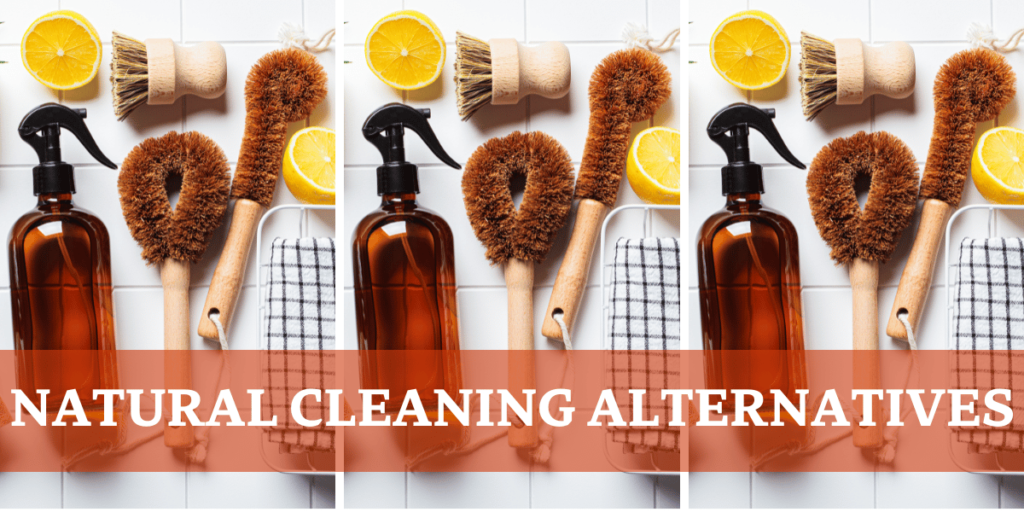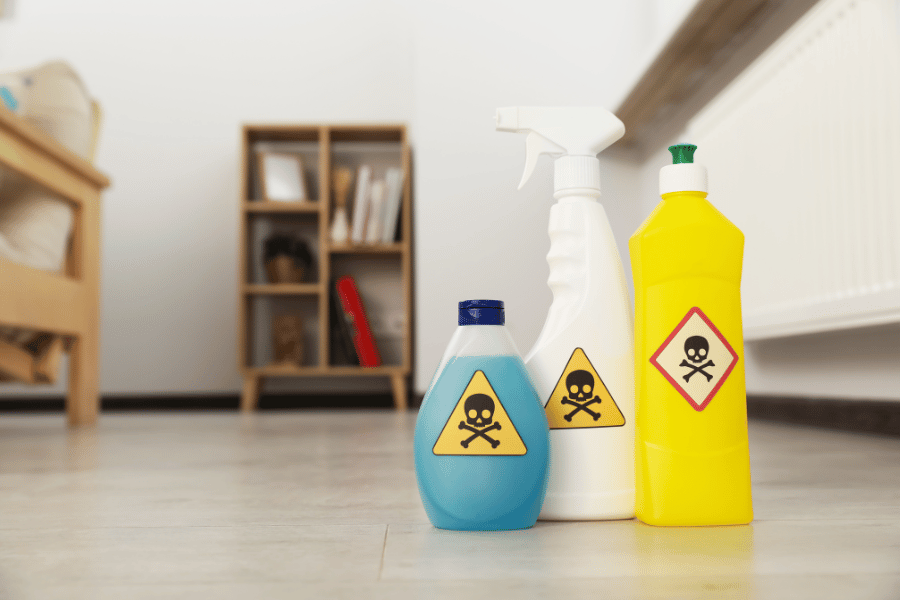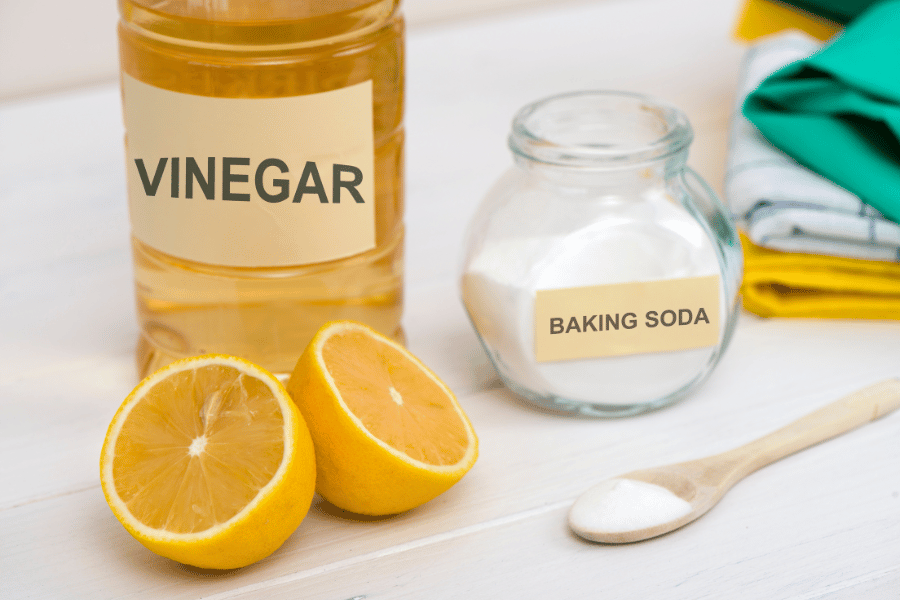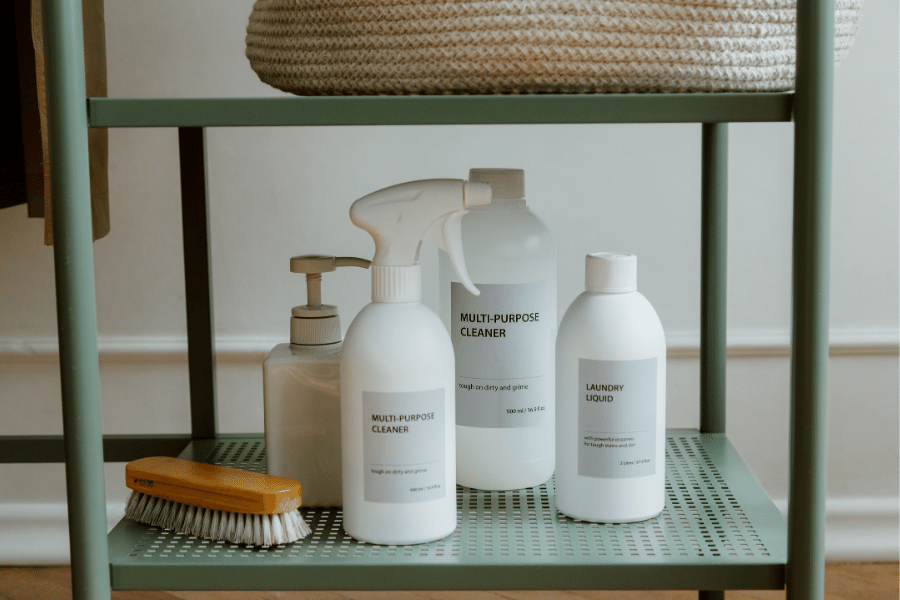
Tired of polluting your home with harsh chemicals? With increasing awareness of the harmful effects of toxic chemicals in household products, many consumers are seeking natural cleaning alternatives.
This transition not only supports a healthier home environment but also contributes to the well-being of our planet.
Eco-conscious consumers, homeowners, and parents are all beginning to recognize the importance of using natural ingredients to reduce exposure to harmful chemicals.
Switching to eco-friendly products can significantly improve indoor air quality, reduce allergic reactions, and even enhance overall health.
Natural cleaning products, for instance, often use essential oils and plant-based ingredients that are not only effective but also provide a pleasant, natural fragrance.
Additionally, many natural products come in sustainable packaging, further minimizing environmental impact.
Whether you’re looking to make a small change or completely overhaul your household routine, opting for natural alternatives is a step towards a healthier, more sustainable lifestyle.
This Post Is All About Natural Cleaning Alternatives.
Why Choose Natural Cleaning Products?
Before diving into the best natural cleaning alternatives, it’s important to understand why choosing natural products is beneficial.
Natural cleaning products are not only safer for the environment, reducing harmful chemical exposure to our ecosystems, but they are also gentler on our health, minimizing the risks of allergies and chemical sensitivities.
Additionally, natural products often utilize renewable resources, promoting sustainability and a healthier planet for future generations.
The Harm of Toxic Chemicals
Traditional cleaning products often contain harmful chemicals such as chlorine bleach, ammonia, and phthalates.

These chemicals can pose significant health risks to both humans and pets.
For instance, many of them act as endocrine disruptors, leading to hormonal imbalances and potentially contributing to conditions like infertility, thyroid dysfunction, and even certain cancers.
Additionally, volatile organic compounds (VOCs) released from these products can cause respiratory problems, such as chronic bronchitis, and exacerbate conditions like asthma and allergies.
The environmental impact is also concerning; toxic chemicals in household cleaners contribute to water pollution.
When these chemicals are washed down the drain, they enter waterways and can harm aquatic ecosystems by disrupting the reproductive systems of fish and other wildlife.
Furthermore, the production and disposal of these chemicals contribute to air pollution and can lead to the accumulation of hazardous waste.
Therefore, it is crucial to consider the long-term implications of using traditional cleaning products and to explore safer, more sustainable alternatives.
Using Natural Cleaning Alternatives
Switching to natural cleaning products has numerous health benefits.
Natural cleaners, composed of plant-based ingredients and essential oils, eliminate the risk of endocrine disruption and respiratory issues associated with harsher chemicals found in conventional cleaning products.

Furthermore, eco-friendly cleaning products reduce environmental pollution, as they biodegrade more easily and are less likely to harm aquatic life when washed down the drain.
They are often packaged with minimal single-use plastic, promoting sustainability and reducing waste.
Making your own cleaning solutions can also be cost-effective, as many recipes utilize common household ingredients like baking soda and vinegar, which are both affordable and effective.
By adopting natural cleaning methods, you’re not only creating a healthier living environment for yourself and your family but also making a positive impact on the planet.
Natural Cleaning Alternatives For The Home
Natural Glass Cleaner
To create an effective glass cleaner, mix equal parts vinegar and warm water in an empty spray bottle.
This simple yet powerful solution not only provides a streak-free shine on glass surfaces but also cuts through grease and grime, leaving your windows and mirrors crystal clear.
Fun Tip: Newspaper is a great tool to clean your windows when using vinegar.
Recipe:
- Mix equal parts vinegar and warm water in an empty spray bottle.
- Spray onto glass surfaces and wipe with a clean cloth.
- For best results, use newspaper to achieve a streak-free shine.
Multipurpose Natural Cleaner
Combine baking soda and freshly squeezed lemon juice to create an effective and natural cleaner that can tackle various kitchen surfaces such as countertops, stovetops, and sinks.
The baking soda acts as a gentle abrasive while the lemon juice provides antibacterial properties and a fresh scent.
Recipe:
- Combine 1/4 cup of baking soda with 1/4 cup of freshly squeezed lemon juice.
- Apply to kitchen surfaces such as countertops, stovetops, and sinks.
- Scrub gently and wipe clean with a damp cloth.
Natural Drain Cleaner
A natural drain cleaner that uses baking soda and hot can have several effects on clogged drains.
Baking soda, also known as sodium bicarbonate, has natural cleansing and deodorizing properties that help break down tough blockages in the pipes.
When mixed with hot water, the combination creates a foaming action that can dislodge trapped debris and flush it out of the drain.
Additionally, if used with vinegar, you can dissolve mineral buildup in the pipes, making it easier for the baking soda to do its job.
Recipe:
- Pour half a cup of baking soda down the drain.
- Follow with a cup of hot water or vinegar.
- Let sit for about 15 minutes.
- Flush with more hot water.
- Repeat monthly for best results.
Natural Dishwasher Cleaner
One common natural dishwasher cleaner is a mixture of aluminum foil, baking soda, and vinegar.
Placing aluminum foil in your dishwasher can assist in removing water stains from metal components, while baking soda and vinegar serve as an effective cleaner.
This combination not only leaves your dishwasher sparkling clean but also helps to eliminate any lingering odors.
Recipe:
- Place a ball of aluminum foil in the utensil holder.
- Sprinkle a cup of baking soda on the bottom of the dishwasher.
- Pour a cup of white vinegar into a dishwasher-safe bowl on the top rack.
- Run a hot water cycle.
- Repeat monthly for best results.
Natural Bathroom Cleaner
Hydrogen peroxide serves as an effective natural disinfectant for bathroom surfaces, killing bacteria and viruses without the use of harsh chemicals.
It can be used to clean countertops, sinks, and even tiles, ensuring a safe and sanitary environment.
Note: Use an old rag or a microfiber cloth as hydrogen peroxide can stain fabrics such as cotton, linen, and wool.
Recipe:
- Pour hydrogen peroxide onto a clean cloth.
- Wipe down countertops, sinks, and tiles.
- Let it sit for a few minutes, then rinse with water.
Natural Toilet Bowl Cleaner
Tea tree oil and baking soda are natural alternatives for cleaning toilets, replacing chemical cleaners.
Tea tree oil’s antiseptic properties disinfect and clean the toilet bowl, while baking soda’s gentle abrasiveness removes stains without harming the surface.
Together, they create a potent yet eco-friendly cleaner, keeping your toilet clean and promoting a healthier home.
Recipe:
- Mix half a cup of baking soda with a few drops of tea tree essential oil.
- Pour the mixture into the toilet bowl.
- Let it sit for 15 minutes.
- Scrub with a toilet brush and flush.
Shower and Tub Cleaner
A combination of castile soap and baking soda forms a powerful yet gentle cleaning solution that effectively freshens up shower and tub areas.
This natural remedy not only ensures cleanliness but also prioritizes skin safety.
Recipe:
- Combine equal parts of castile soap and baking soda to make a paste.
- Apply the paste to shower and tub surfaces.
- Scrub gently with a brush or sponge.
- Rinse thoroughly with water.
Natural Dusting Solution
A damp microfiber cloth with a few drops of your favorite essential oils, like lavender or eucalyptus, will not only remove dust effectively but also impart a pleasant, lingering aroma throughout your home.
This method is eco-friendly and avoids the use of harsh chemicals.
Recipe:
- Take a damp microfiber cloth.
- Add a few drops of essential oils (lavender or eucalyptus).
- Wipe surfaces to remove dust and leave a pleasant aroma.
Natural Furniture Polish
Natural furniture polish, made with a combination of vegetable oil and lemon juice, gently nourishes and moisturizes wooden surfaces while removing dirt and grime.
It leaves a subtle shine without any harsh chemicals, making it not only effective but also environmentally friendly.
Recipe:
- Mix 1/2 cup of vegetable oil with 1/4 cup of lemon juice.
- Apply the mixture to wooden furniture using a cloth.
- Wipe to restore shine and leave a citrus scent.
Glass Surfaces
If you just need a quick wipe down, club soda works wonders for achieving a streak-free shine on glass surfaces like windows, mirrors, and glass tabletops.
Recipe:
- Fill a spray bottle with club soda.
- Spray the soda onto glass surfaces.
- Wipe with a clean microfiber cloth for a streak-free shine.
Natural Laundry Soap
A simple recipe using castile soap, washing soda, and borax creates an effective and gentle laundry detergent.
Castile soap, made from vegetable oils, is biodegradable and non-toxic.
Washing soda and borax work together to enhance the detergent’s cleaning power, making it an excellent choice for those looking to avoid harsh chemicals in their laundry routine.
Recipe:
- Mix 1 cup of castile soap, 1 cup of washing soda, and 1/2 cup of borax.
- Store in a container.
- Use 1-2 tablespoons per load of laundry.
Natural Fabric Softener
Vinegar added to the rinse cycle acts as a natural fabric softener.
Vinegar not only softens fabrics but also helps to reduce static and remove any detergent residue left on clothes, leaving them fresh and clean without any artificial scents.
Recipe:
- Add 1 cup of vinegar to the rinse cycle of your washing machine.
Natural Stain Remover
A paste made from hydrogen peroxide and baking soda can tackle even the toughest stains.
Hydrogen peroxide is a natural bleaching agent that works effectively on organic stains, while baking soda provides gentle abrasion to lift stains from fabric fibers, making this combination a powerful yet eco-friendly stain remover.
Make sure to test small areas of clothing before ensure the bleaching properties don’t bleach your fabrics.
Recipe:
- Mix 1 part hydrogen peroxide with 1 part baking soda to form a paste.
- Apply the paste to the stain and let it sit for 15-20 minutes.
- Rinse thoroughly and wash as usual.
Tips for Making the Switch to Natural Cleaners
Transitioning to natural cleaning products can be done gradually, allowing you to familiarize yourself with each new option.
Begin by replacing one traditional product at a time with a natural alternative, such as switching your chemical-laden all-purpose cleaner with one made from vinegar and essential oils.
Reading labels is crucial—look for cleaners with plant-based ingredients and certifications from reputable organizations like the Environmental Working Group (EWG) or the Environmental Protection Agency (EPA).
Additionally, pay attention to the list of ingredients, avoiding harmful substances like synthetic fragrances and dyes.
Another helpful way to make the switch is by getting a starter kit.

Starter kits that include essential supplies like empty spray bottles, microfiber cloths, and reusable containers can also make the switch smoother.
You might find it helpful to create a dedicated space for your new cleaning supplies, ensuring they are easily accessible.
Over time, as you replace more products, you’ll likely notice not only a reduced environmental impact but also potential health benefits, such as fewer allergic reactions or respiratory issues.
Embracing natural cleaning products is a rewarding process that promotes a healthier lifestyle and a more sustainable home.
Conclusion
Natural cleaning alternatives offer numerous benefits, from improved health to a healthier environment.
These natural cleaning alternatives reduce exposure to harmful chemicals found in many commercial cleaners, which can contribute to respiratory issues and skin irritations.
By following the recipes and tips provided, you can start enjoying the benefits of homemade, eco-friendly cleaning solutions that are not only safe but also cost-effective.
We encourage you to try these natural cleaners, share your experiences, and contribute your favorite recipes in the comments section.
Embracing natural cleaning alternatives can lead to a more sustainable lifestyle, protecting both our health and the planet for future generations.
